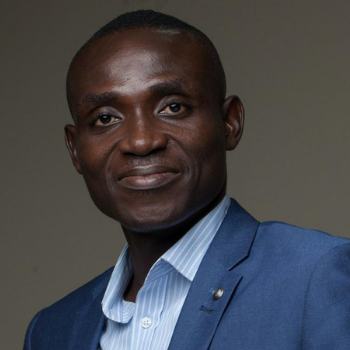ADDING WEIGHT TO VOICE
Instead of being an individual within an organisation in a country, it’s more a regional professional organisation… when you give advice [to partner and beneficiary organisations] people know that you are part of a regional community of practice.
Kirchuffs Atengble joined the AEN not very long after its inception. In 2014 he was part of GINKS (Ghana Information Knowledge Systems),
a VakaYiko consortium member in Ghana that was part of the larger DFID-funded Building Capacity to Use Research Evidence (BCURE) programme in Africa. He is currently a member of the AEN advisory group, and also heads up PACKS Africa, an indigenous Ghanaian think tank providing support services in the evidence-to-policy sector.
Having been part of BCURE, and seeing the AEN develop side-by-side makes it difficult to pin-point a single direct impact that the AEN has had on his work. However, the AEN’s role in building a community of practice,
"...bringing together individuals who in one way or the other are involved in the evidence ecosystem on the continent, from production to use, has helped with the sharing of experiences and practice."
Being part of the AEN comes with a sense of professionalism and prestige, and this has changed something for Kirchuffs, even though the contribution is indirect and difficult to measure. As he explains:
"Instead of being an individual within an organisation in a country, it’s more a regional professional organisation… when you give advice [to partner and beneficiary organisations] people know that you are part of a regional community of practice. It’s not that as somebody somewhere you are recommending this."
For Kirchuffs, the professionalism and prestige that comes with being part of a regional body such as the AEN has helped to raise his profile beyond an individual working in the evidence-to-policy space, to being part of a recognised Pan-African community of practice.
